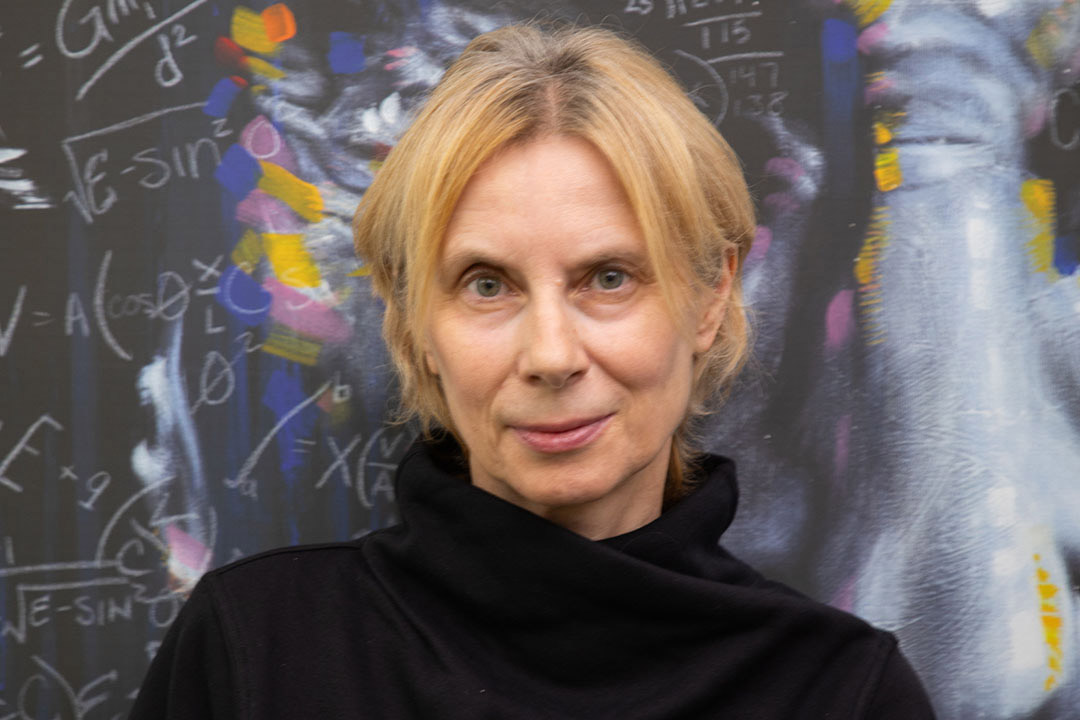Campanelli named to John Vouros Endowed Professorship
The Distinguished Professor of Astrophysics has been appointed for her outstanding accomplishments in researching and mentoring
Mary Pryor/RIT
Manuela Campanelli has been appointed the John Vouros Endowed Professor.
Manuela Campanelli, Distinguished Professor of Astrophysics and founding director of the Center for Computational Relativity and Gravitation, has been appointed as the John Vouros Endowed Professor.
Campanelli has earned a long list of accolades, including the RIT Trustee Award, appointment as an American Physical Society (APS) Fellow, and a Fellow of the International Society on General Relativity and Gravitation. Most recently, she was named the APS 2024 Richard A. Isaacson Award in Gravitational-Wave Science winner for her contributions to and leadership in the understanding and simulation of merging binaries of compact objects.
“This professorship recognizes outstanding accomplishments in research, commitment to diversity, equity, inclusion, and respect, and other activities such as mentoring undergraduate and graduate students and post-docs, as well as engagement with the professional community outside of RIT,” said RIT Provost and Senior Vice President for Academic Affairs Prabu David.
The appointment is for three years and can be renewed by the dean of the College of Science based on performance and stewardship. The endowed professorship also provides Campanelli with a $50,000 yearly stipend that may be used to support teaching, research, scholarship, and service initiatives.
“This appointment honors and recognizes Dr. Campanelli’s outstanding dedication to education, and relentless pursuit of knowledge, especially as it relates to black holes, neutron stars, and gravitational waves as a teacher-scholar,” said College of Science Dean André Hudson.
The John Vouros Endowed Professorship was created by RIT alumnus and founder of Datto Austin McChord ’09 (bioinformatics) as part of a $50 million donation to RIT made by McChord in 2017. The endowed professorship is named after a former teacher who ran the gifted program at McChord’s grade school.
Campanelli focuses her research on the merger of black holes and neutron stars, which generate gravitational waves, electromagnetic radiation, and relativistic jets. These investigations are utilized in the study of cosmic events and have led to groundbreaking work in the field of astrophysics.
She is currently leading a NASA program focused on the simulation of binary supermassive black holes and their associated electromagnetic radiation, which is important to the upcoming Laser Interferometer Space Antenna (LISA) mission led by the European Space Agency (ESA). Campanelli is enthusiastic about the LISA mission, as it will be the first to study and detect gravitational waves from space, which will help gain insight into the astrophysical environments surrounding merging supermassive black hole binaries. The mission closely aligns with Campanelli’s work and the mission of the Center for Computational Relativity and Gravitation.
A formal event naming Campanelli to the John Vouros Endowed Professorship will be held later this semester.




